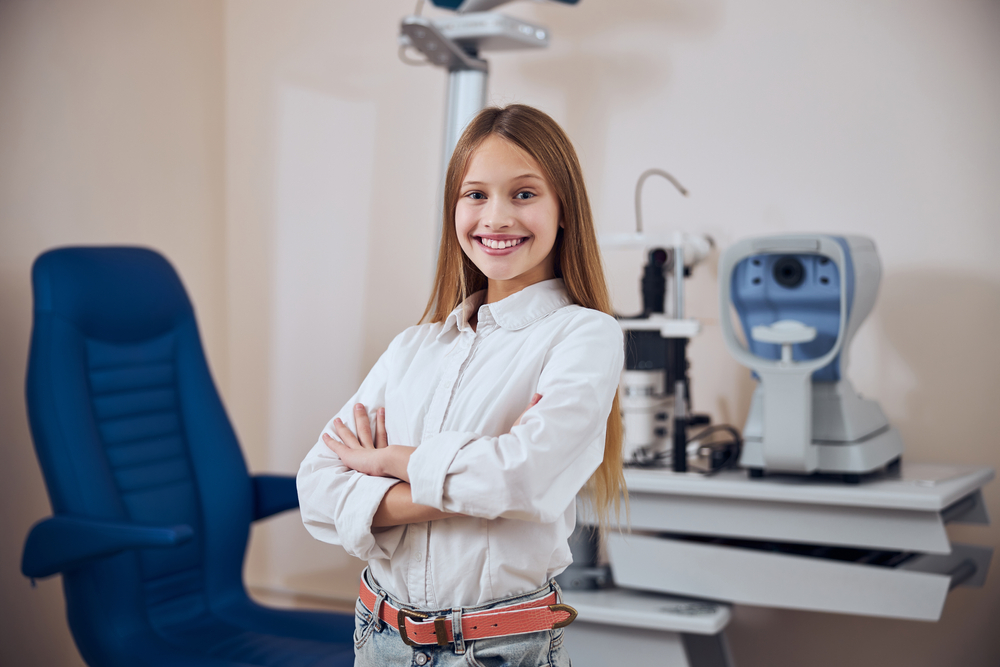
Myopia, or nearsightedness, is due to light focusing in front of the retina and is typically caused by a longer-than-average eyeball or a steep cornea. Symptoms of myopia include:
blurred vision at a distance
squinting
eye rubbing
headaches
Myopia can be corrected with eyeglasses and contact lenses, which help to diverge light so that it focuses sharply on the retina. In adults with a stable level of myopia, surgery is also an option to reduce the need for eyeglasses or contact lenses.
Why Does Myopia Progression Matter?
Myopia is a focusing disorder, not an eye disease. But as myopia progresses it can increase the risk of eye disease and loss of vision with increased risk of retinal detachment, glaucoma, and macula myopathy. Myopia can further impact quality-of-life and confidence in a developing child or teenager.
Over the past 50 years the percentage of Americans with myopia has increased from 25% to more than 40%, increasing at an alarming rate, especially for school-aged children. By 2050 it’s predicted that nearly 60% of the North American population will be myopic.
How Can We Slow Myopia Progression?
The use of spectacle lenses that provide near focus has been shown to slow the progression of myopia, but with limited success. Contact lenses may offer better success in slowing myopia in the form of soft and/or rigid lenses. Additionally, Atropine eye drops have shown success in reducing eye growth. Outdoor activity can further reduce the risk of progression by reducing the amount of continuous near focus.
The doctors at Williamsburg Eye Care can provide any combination of these treatment options to manage or slow the progression of myopia. We believe that with early intervention, the long-term eye health risks associated with myopia can be reduced.
For more about myopia treatment, visit Williamsburg Eye Care at our Williamsburg, Virginia office. Call (757) 564-1907 to schedule an appointment today.






